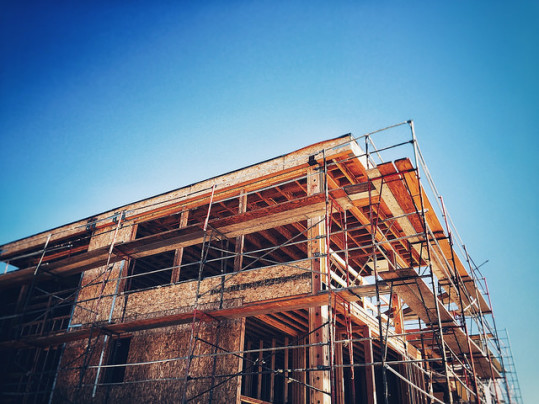Baby boomers are reaching retirement age and many of them have expressed a desire to move from their current home. Whether they’re downsizing or buying their dream house in another state, what these boomers do in retirement will have an affect on the housing market over the next several years. Because of this, the National Association of Home Builders saw a big end-of-the-year jump in their quarterly 55+ Housing Market Index. In fact, during the fourth quarter of last year, the index – which measures builders’ confidence in the market among buyers over the age of 55 – reached its highest level since the survey began in 2008. Dennis Cunningham, chairman of the NAHB’s 55+ Industry Council, says some of the optimism was due to the November election but demographics also play a large role. “Builders and developers in this market segment are also encouraged by the fact that for the next 15 years, 10,000 baby boomers will be turning 65 every day,” Cunningham said. “The consistent pressure of this age group wanting to downsize from a large home, shifting to other regions of the country or just simply looking for a newer home or community also plays a key role in the index movement.” More here.
Archive for February 2017
Homeownership Still A Dream For Americans
Homeownership has long been seen as a big part of achieving the American dream. And that hasn’t changed, according to recent data from the National Association of Realtors. An analysis of their Housing Opportunities and Market Experience survey found that 87 percent of non-homeowners said they want to one day own a home of their own and 80 percent of all respondents said homeownership was part of their American dream. So what are some of the concerns that keep people from pursing their dream of homeownership? Well the number one answer was affordability, followed by people who need the flexibility of renting. But there are also Americans that have postponed buying a home because of misconceptions they have about the buying process and what is required financially. For example, nearly 9 out of 10 survey participants said a down payment of 10 percent or more was required to buy a house – which is untrue. In fact, the median down payment for first-time buyers has been 6 percent for the past three years, while repeat buyers put down closer to 14 percent. William Brown, NAR’s president, says people who haven’t bought a house before may not be as far off as they think they are. “Current non-owners’ ultimate goal of owning a home may not be as far-fetched as they believe,” Brown said. “There are mortgage options available for creditworthy borrowers with manageable levels of debt and smaller down payments.” More here.
How Long Does It Take To Break Even On A House?
Conventional wisdom says, after buying a house, you should stay there at least five years before selling. The reason is that, due to the substantial upfront costs of buying a home – including the down payment, closing costs, etc. – you need to allow yourself some time to build up equity in order to recoup that money. However, the exact amount of time it takes to break even will vary from market to market. After all, home values don’t rise at the same exact rate in every town across the country. In fact, according to Zillow’s Q4 2016 Breakeven Horizon report, the typical break even point can be anywhere from just under a year and a half to over five years, depending on where you live. For example, home buyers break even fastest in markets in the South and Midwest, such as Indianapolis, Orlando, Detroit, Atlanta, and Tampa. On the other end of the spectrum, California homeowners have the longest break even points. Buyers in cities like San Jose, San Francisco, Los Angeles, and San Diego should expect to stay in a house at least four years before they break even. Of course, there are a lot of factors that go into determining how long it’ll be before you have enough equity in your house to make back the money you put down to purchase it. But with the national average at just under two years, planning on staying in your home for five years seems like a safe bet. More here.
Mortgage Rates Moved Higher Last Week
According to the Mortgage Bankers Association’s Weekly Applications Survey, mortgage interest rates moved up last week. Rates increased for 30-year fixed-rate loans with both jumbo and conforming balances, as well as 15-year fixed-rate mortgages. Loans backed by the Federal Housing Administration saw rates flat from the week before. The rate increase contributed to a 3.2 percent drop in the number of Americans requesting applications for loans last week. Another reason for the drop in demand, according to MBA chief economist, Michael Fratantoni, was changes to a proposal that would’ve reduced mortgage insurance premiums on FHA loans. “Following the decision to suspend a proposed decrease in the FHA mortgage insurance premium, FHA refinance applications dropped more than 25 percent, while FHA purchase applications fell almost 6 percent,” Fratantoni told CNBC. Still, even with last week’s decline, the number of applications for loans to buy homes remains higher than it was last year at the same time and Fratantoni continues to believe home sales this year will exceed last year’s levels. The MBA’s weekly survey has been conducted since 1990 and covers 75 percent of all retail residential mortgage applications. More here.
Home Price Index Shows Continued Gains
Home prices were up 5.6 percent year-over-year, according to the latest results from the S&P CoreLogic Case-Shiller U.S. National Home Price Indices. Considered the leading measure of U.S. home values, the index found prices relatively flat month-over-month but up on an annual basis. Seattle, Portland, and Denver reported the sharpest increases but, in total, eight of the 20 included cities saw greater gains than they did over the same period one year earlier. David M. Blitzer, managing director and chairman of the index committee at S&P Dow Jones Indices, says home prices have fully recovered after years of volatility. “With the S&P CoreLogic Case-Shiller National Home Price Index rising at about 5.5 percent annual rate over the last two-and-a-half years and having reached a new all-time high recently, one can argue that housing has recovered from the boom-bust cycle that began a dozen years ago,” Blitzer said in a press release. “The recovery has been supported by a few economic factors: low interest rates, falling unemployment, and consistent gains in per-capita disposable personal income.” Blitzer added that continued personal income and employment gains could boost demand for housing even further this year. More here.





